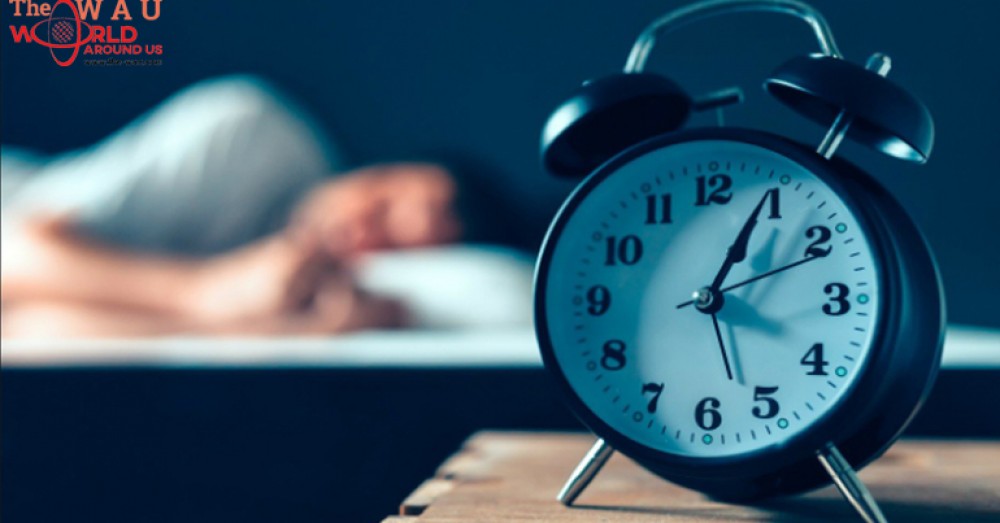There’s no doubt sleep is an essential part of your life. Without it, you’re left drowsy, exhausted, and unable to work at your best. Sleep well and you should feel less stressed, more energized, and raring to go. But is there an ideal time you should sleep and wake up every day for an optimal night’s rest? Here’s what you should know.
Understand Your Body Clock And Follow Nature’s Rhythm
Your body is naturally tuned to follow the order of day and night to determine sleep patterns. Which is why your circadian rhythms align so closely with the presence or absence of light or (specifically) sunlight. Every morning, when your body is exposed to light, your brain transmits messages to the rest of your body, causing a rise in body temperature. The production of cortisol, a hormone that regulates metabolism, is also stimulated. On the other hand, when light fades, your melatonin levels begin to rise and stay high through the night, promoting sleep onset and supporting sleep.
.jpg)
Ideal Sleep Time Frame Between 10 PM And 6 AM
If you mimic the pattern of light and dark nature follows, that would mean your optimal sleep time would be around 10 pm and wake-up time would be around 6 am, to align broadly with the sun’s setting and rising. Some experts push this back to a sleep window that starts at 8 pm. Getting to bed within the window of 8 pm to 12 am should get you adequate restful sleep that includes both the dream-rich REM sleep and restorative non-REM and deep sleep.2
Your strongest sleep drive as an adult is generally between 2 and 4 am, so you must ensure that you are definitely asleep at this point. The other time of day you’ll have a similar urge to sleep is between 1 and 3 pm in the afternoon. If you have slept well at night, the afternoon phase won’t hit you as hard. Teenagers tend to experience their dips later in the night, close to 3 and 7 am and between 2 and 5 pm in the afternoon. If a teen hasn’t had enough sleep the previous day, the circadian dip may last as long as till 9 or 10 am – which is why you’ll see the classic teen behavior of sleeping in.
Determine Your Waking Time And Work Backward To Arrive At An Ideal Bedtime
So what does this mean for your own bedtime? According to the experts, while there may be some golden windows to sleep, you don’t need to have the same bedtime as everyone else. There is leeway for you to work out a time that suits your lifestyle and still gives you the rest you need. How do you do this? Follow these simple steps that are recommended to fix bedtimes for school-going kids but can work just as well for you.
- Work out what time you have to wake up. This timing must allow you enough time to start your day off comfortably without a mad dash in the morning.
- Determine how much sleep you require. Which is 7 to 9 hours for most adults, 8 to 10 hours for older teens, 9 to 11 hours for 6- to13-year-olds, and as much as 14 hours for pre-schoolers.
- Now work backward from your ideal wake-up time. So if you need to wake up by 6 am and are an adult, you should be asleep 8 hours earlier on average. Which means 10 pm is your ideal bedtime.
Don’t Delay Bedtime Beyond 12 AM: Sleeping Past Midnight Linked To Risk Of Psychological Issues
If you love staying up late into the wee hours, it could make you more prone to psychological issues. Late rising linked to eveningness has been linked to a raised risk of bulimic behavior, depression, and seasonal affective disorders (SAD).6 As one study on Japanese workers found, a late bedtime has a significant association with a higher prevalence of depressive symptoms.In another sample of undergraduate students, a higher level of focus on the negative aspects of their lives, a phenomenon dubbed repetitive negative thinking, was found among those who were active late into the night and, consequently, slept later or delayed their sleep.
Wake Up Early: Rising Early Has Its Benefits
Rising early in the morning helps you get some clear time to plan your day or even your long-term goals. It gives you a sense of control and makes you more proactive. It could also make you more positive about things – which is why the phrase “happy as a lark” (another early riser) makes perfect sense.10 Unlike night owls who have a tendency to be more sedentary11, early risers may be more active, as one study on children found
So what is this ideal wake up time? You could take a cue from ayurveda.
...[ Continue to next page ]
Share This Post















